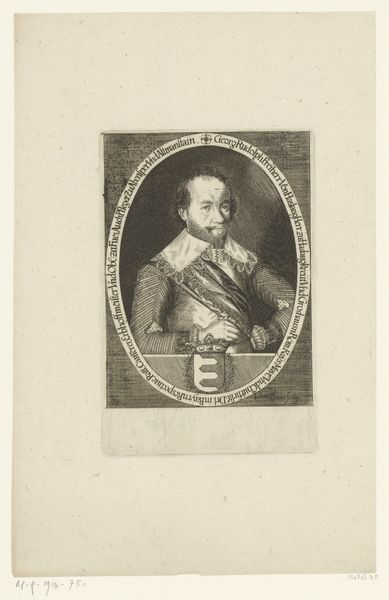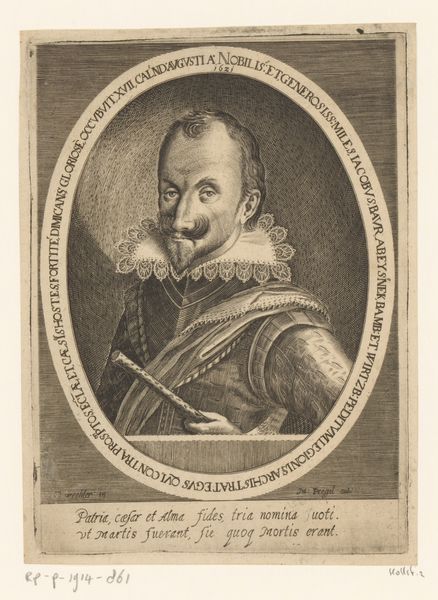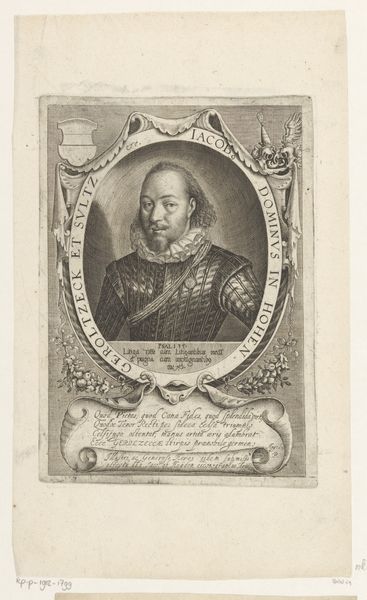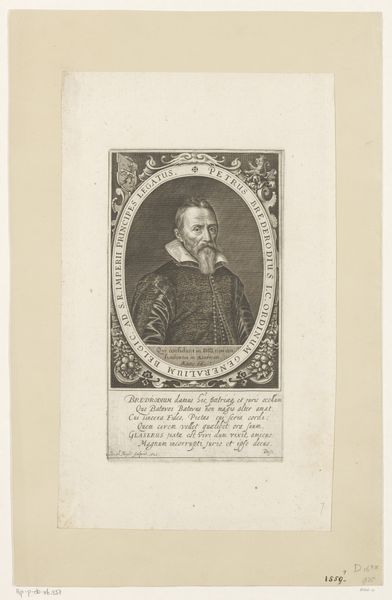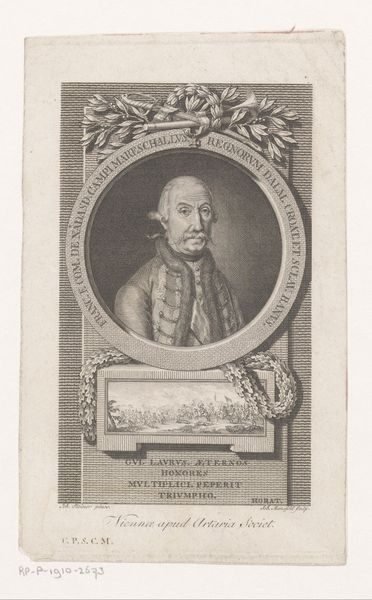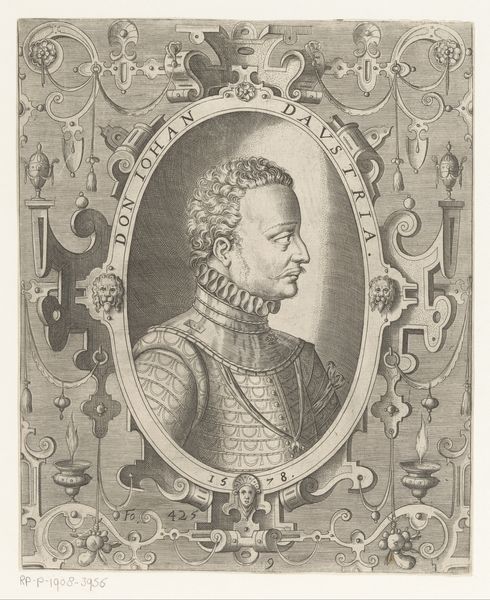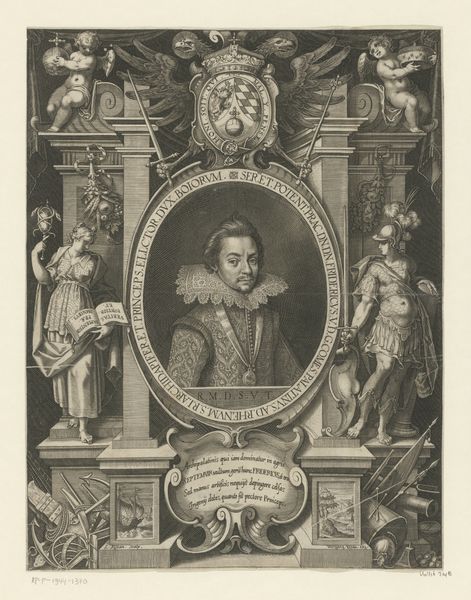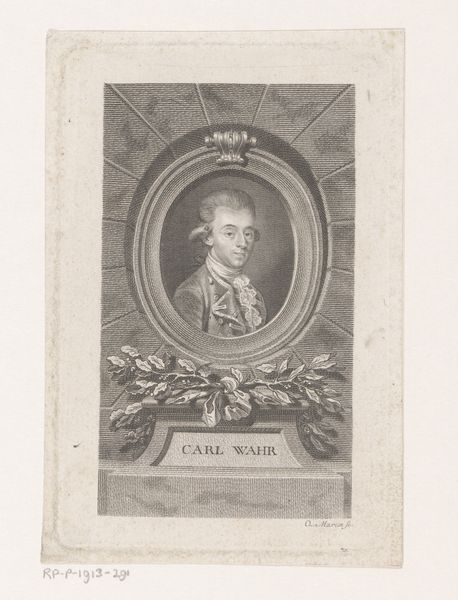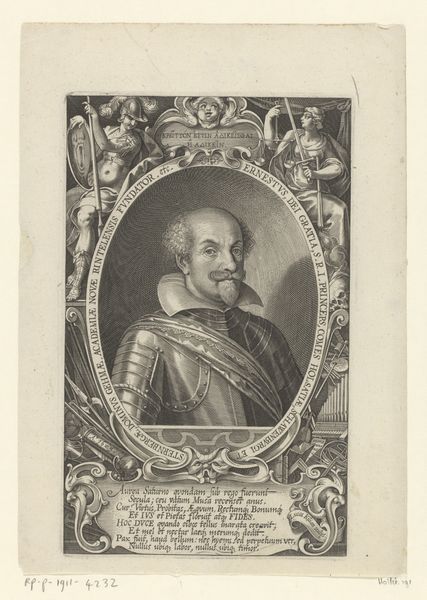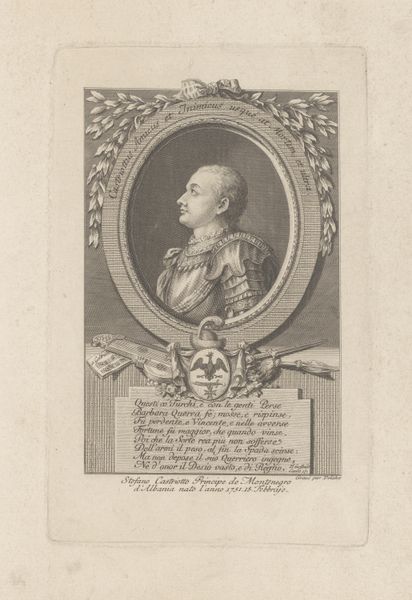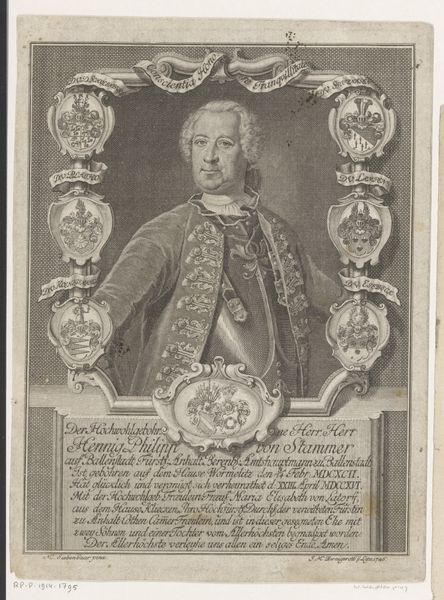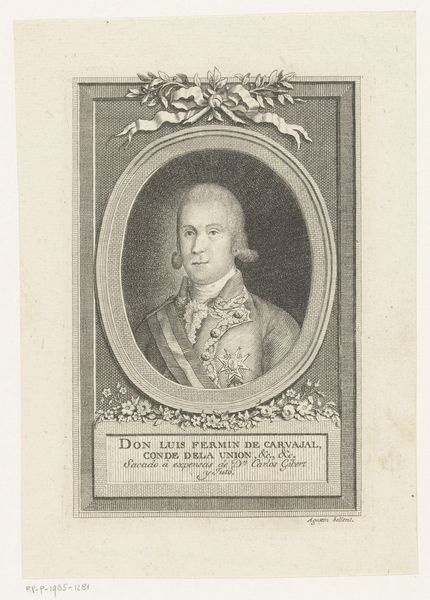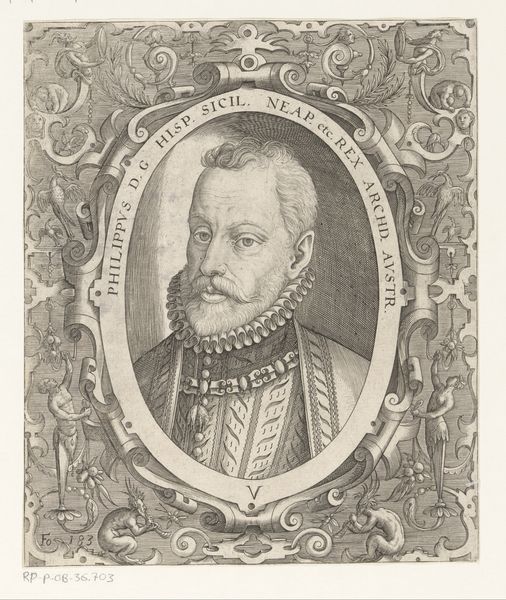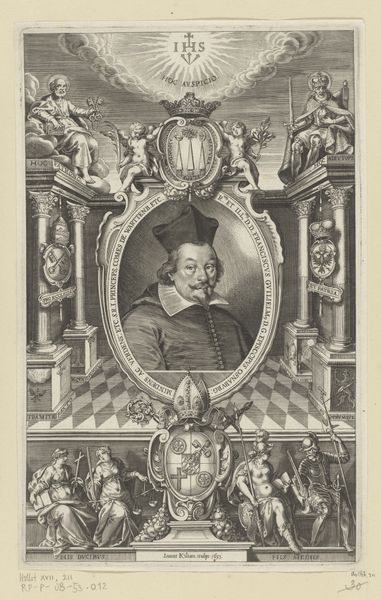
print, engraving
#
portrait
#
baroque
# print
#
old engraving style
#
figuration
#
line
#
history-painting
#
engraving
Dimensions: height 346 mm, width 261 mm
Copyright: Rijks Museum: Open Domain
Antonio Pazzi’s “Portret van Antonio de’ Medici,” made around the 18th century, presents a study in the visual language of power and identity. The subject, framed in an oval of laurel, confronts us with a gaze that is both direct and slightly aloof. Note the composition: the central placement of Medici, armored and adorned, emphasizes his status. Pazzi's meticulous use of line and texture defines the contours of the face and the reflective surfaces of the armor. The laurel wreath, a classical symbol of triumph and honor, frames the portrait, creating a sense of enclosure that draws the viewer’s eye inward. Consider the visual codes at play here; the armor signifies military strength and nobility, while the overall formality of the composition reinforces the sitter's elevated position within the societal structure. Yet, there's a certain flatness in the rendering, a lack of depth that suggests more than just physical representation. It speaks to the performance of identity, the crafting of an image intended to project authority and lineage. This portrait, therefore, is not merely a likeness but a carefully constructed statement about power, heritage, and the visual rhetoric of the elite.
Comments
No comments
Be the first to comment and join the conversation on the ultimate creative platform.
